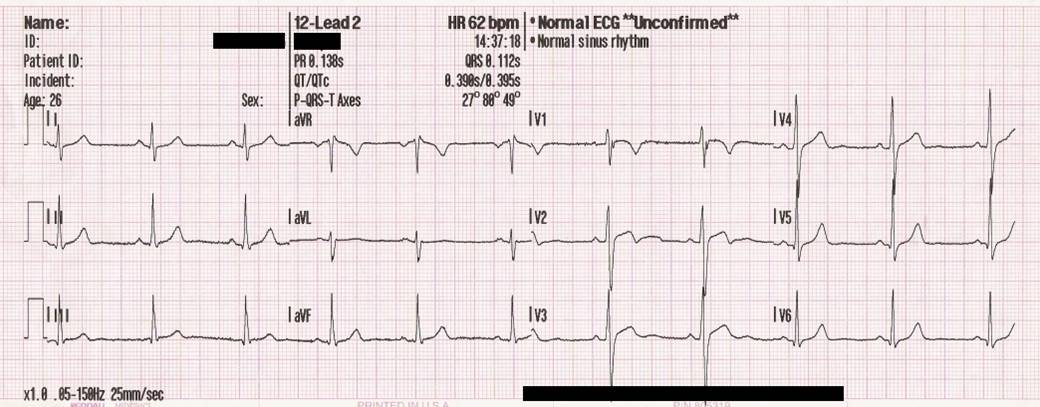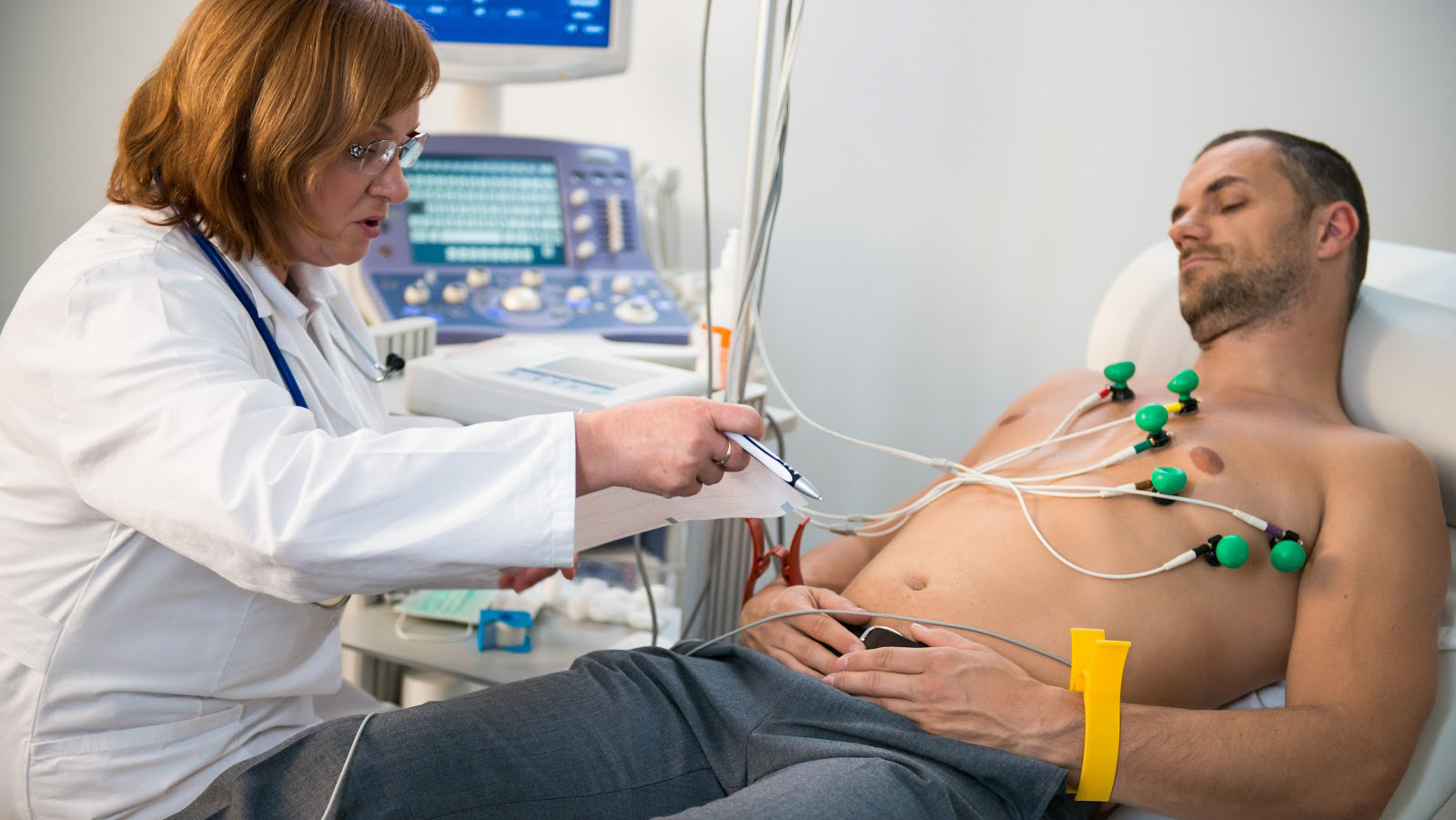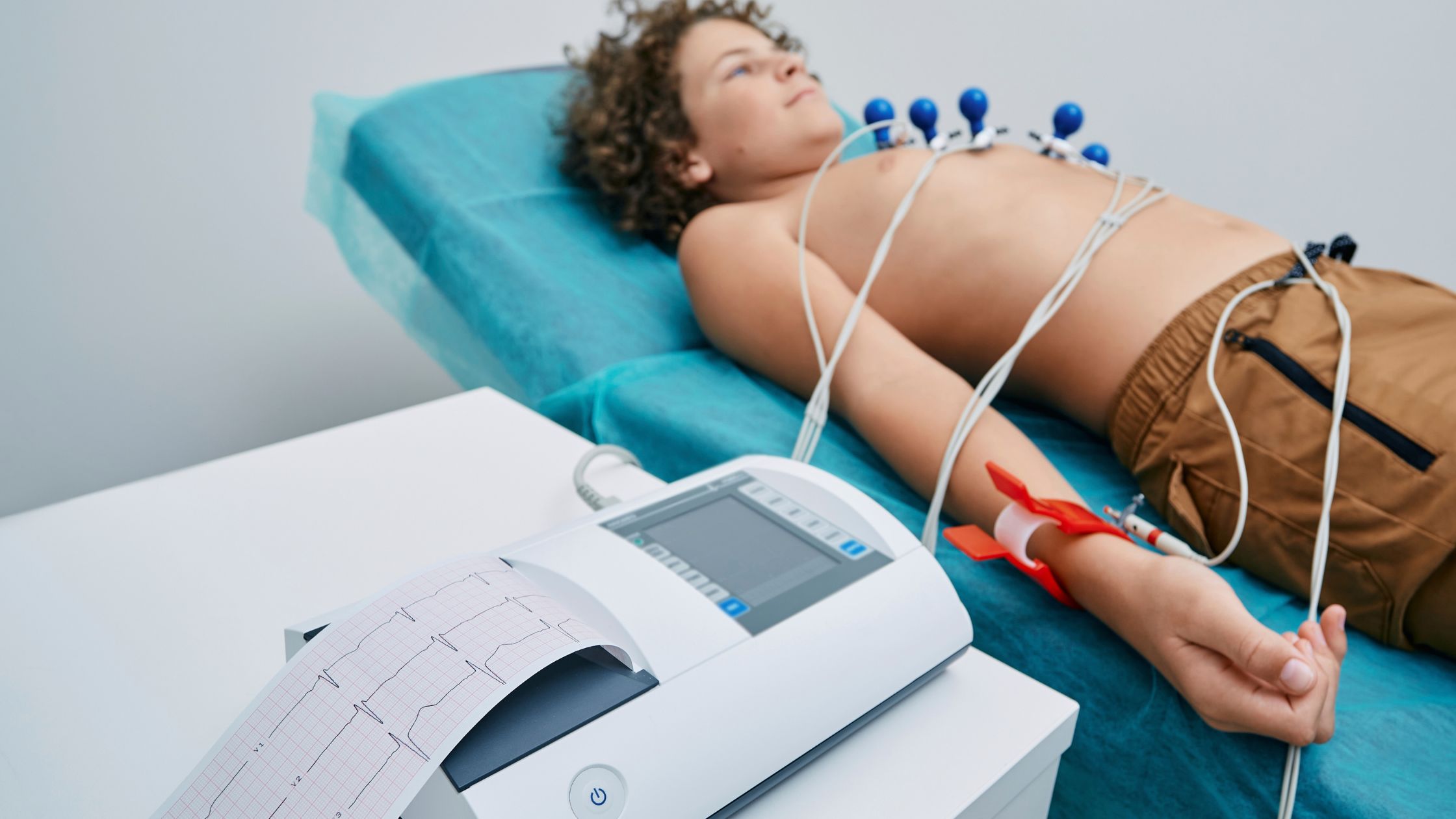An electrocardiogram ( ECG) is a test that measures the electrical activity of the heart and can help identify certain

cardiac problems The arms legs and chest are covered with small sticky patches ( electrodes ) and wire leads are
connected to an ECG machine also known as an electrocardiograph which records the electrical activity of the
heart muscle and displays it as a trace on a screen or paper.
Types of ECG Test
Electrodes Small adhesive patches with conductive gel are placed on specific areas of the chest arms and kegs These electrodes are then connected to an machine

Recording The machine records the electrical impulses generated by the heart as it contracts and relaxes The electrical signals are then converted into a graphical representation called an electrocardiogram.
Explanation A doctor reviews results to check for any abnormalities in the heart’s rhythm rate and electrical pathways.
Changes in the heart’s electrical activity can be caused by abnormalities in heart rate or rhythm or by injury to the cardiac muscle when analyzing the trace a doctor will look for distinctive sings of various cardiac problems.
What is an ECG Test


An ECG is a non invasive painless procedure that helps diagnose a variety or common cardiac conditions An ECG test can be used to identify.
- problems affecting the heart’s electrical system.
- arrthymias or abnormal heart rhythms .
- whether chest discomfort or a heart attack is brought on by narrowed or blocked arteries to the heart ( coronary artery disease).
- whether the person has ever had a heart attack.
- how successfully are certain heart disease treatments , such as pacemakers performing.
When should i have this ECG test?

if a person exhibits any of the following symptoms , they may benefit form having ECG:
- Chest pain- if you have chest pain , especially if it radiates to the arm neck, or jaw, an ECG can help diagnose heart- related problems.
- dizziness or fainting- help determine whether a cardiac arrhythmia is causing the dizziness or fainting episode.
- shortness of breath- unexplained shortness of breath may warrant an ECG to evaluate heart function.
- irregular heartbeat-if a person has palpitation or is suspected of having in irregular heartbeat ,an ECG can identify the type of arrhythmia.
- early detection- A doctor may recommended periodic ECG if you have risk factor for heart disease , such as family history , high blood pressure , high cholesterol, or diabetes.
- before surgery- An is often performed before surgery to assess heart health .
- Regular checkups- Sometimes, are part of routine check- ups.
Even if there are no symptoms , a doctor may recommended an electrocardiogram as a screening test if the patient has a family history of heart disease. While an is performed under normal conditions. it cannot detect symptoms that come and go that do not occur during the test. A medical professional may recommended remote or ongoing ECG monitoring.
What happens during an ECG test?
An ECG test can be performed either as an outpatient procedure or as part of a hospital stay. the step may very based on the patient health and the doctor approach.
A typical ECG procedure is as follows:

The patient will be asked to remove clothing form the waist down and, if necessary , put on a gown.
- For the best the patient will be asked to lie down on a table or bed. It is very important to remain calm and quiet through out the ECG to avoid any changes in the tracing.
- electrodes will be attached to the chest, arms and legs . Lead wires and electrodes will be connected.
- after the leads are connected ,. the technician will enter the patients identification information into the machines computer.
- the ECG will now begin , and tracing can be completed in a short time .
- Once the tracing is complete, the technician will remove the leads and skin electrodes.
Use of ECG test


ECG medical test have several important uses, including:
- Determining the causes of cardiac illnesses such as arrhythmias , heart attacks, any rhythm problems.
- assessing the effects of medications or medical devices on the heart.
- Monitoring the progression of heart disease tor recovery form heart related procedures.
- screening for heart problems in individuals with risk factors or a family history of heart disease.
- Assessing overall heart health during regular checkups.
Benefits of ECG testing
Here are some of the benefits associated with an EKG test:
- Diagnostic Tool: EKG is a valuable diagnostic tool that helps detect irregularities in the heart rhythm an diagnose various cardiac condition such as arrhythmias, heart attacks, and other heart disease.
- Routine screening: EKG are often used in routine medical check ups especially for people at risk for heart disease . Early detection of cardiac abnormalities can lead to timely intervention and improved outcomes.
Conclusion
An ECG test is an important diagnostic tool. it helps detect an treat cardiac disease. it takes a few minutes to complete is non- invasive and painless. depending on the unique needs of patients numerous types of ECG tests are available .
you can count on us t meet all your testing needs . Book a package with reasonable test prices with us today to get fast . accurate and complete results.




